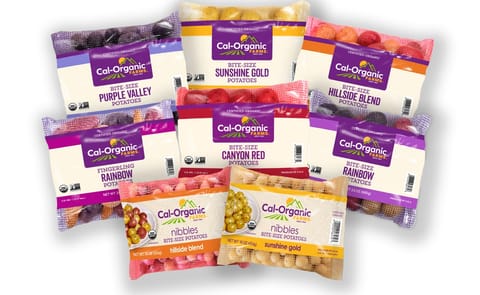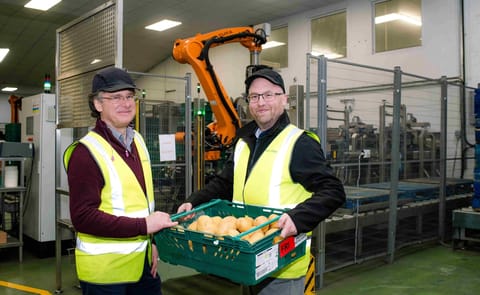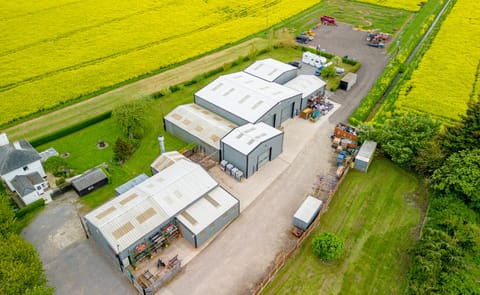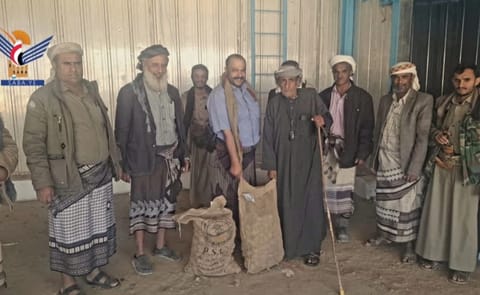Appreciation of the food and agriculture sector increases, following years of decline
Solapas principales
Appreciation of the food and agriculture sector increases, following years of decline

Public appreciation of the food and agriculture sector is greater in 2020 than it was two years ago. This applies to all sub-sectors, apart from pig farming, which is held in the same esteem as it was in 2018.
The findings come from the Agrifood Monitor, a survey carried out by Wageningen Economic Research and commissioned by Topsector Agri & Food. The Monitor reveals what people think of the various sectors and suggests ways of improving public perceptions.
For example, it can be helpful for farmers and market gardeners to take a regional approach to selling their products.
Current events, such as the farmer protests and Covid-19, have changed the drivers of appreciation for the sector. Compared to previous years, the economic contribution of the agriculture and food sector as well as trust in food safety have become more important determinants of how people value the sector.
Covid-19 has had an impact on our appreciation of food and its sub-sectors.
Covid-19 has influenced the way people eat, with respondents indicating that their eating habits have changed. Pork consumption has declined, while fruits and vegetables have increased. People reported making this change for the sake of their health.
Covid-19 has had an impact on our appreciation of food and its sub-sectors
The virus has also affected the way people assign value to basic needs such as food safety and stability. They’ve become more interested in where our food comes from and how it’s produced. Covid-19 has had an impact on our appreciation of food and its sub-sectors
Covid-19 has also driven a growth in appreciation for Dutch products. Those who already had healthy habits have made their diets even healthier.
What do we most value about food?
People value flavour, affordability, and healthiness above anything else when it comes to everyday food, more so than in previous years. Safety and positive feelings are also more important than in previous years.
Sustainability is just as important as it always was. And compared to 2018, it's even more important to us that food is sourced regionally.
If you look at those values and place them alongside the sectors, it's evident that values such as good for me, keeps me in shape and gives me energy are less important for the sectors that involve animals.
Fresh, regional, natural, and environmentally friendly are important in relation to market gardening and arable farming.
Sustainability and what it means to you
People associate almost all of the sectors with sustainability. Arable farming and market gardening are seen as being the most sustainable. Pig farming, poultry, supermarkets, and the food industry score the lowest on that front.
In general, people also feel that supermarkets and the food industry are the least fair in their sales tactics and have the least fair retail models.
The dairy industry was identified as contributing the most to animal welfare. This sector, along with arable farming and market gardening, scored the highest on fairness.
Respondents also indicated that they are prepared to pay more for sustainable food. This relates mainly to dairy and arable farming products. 70.9% of respondents said they were prepared to pay 10% more.
Ways of boosting appreciation
Reducing the physical and social distance of a sector increases appreciation of it. The research found that the closer people are to a farmer or market gardener, the more they value them.
People living in close proximity to a farmer have a greater appreciation of the agriculture and food sector. The more you know about the local farmer, and the more local products you can buy, the better.
The value attached to food varies at different times, from production to consumption, purchase, and disposal. Food is most valued at the point of consumption, and least when it is wasted.
The divide between food production and the general public is increasing, but those people who do already value food production have a more positive perception of the sectors.
Creating allotments, visiting farms, and buying food directly from farmers or market gardeners are all ways that might further increase public appreciation of food production.










